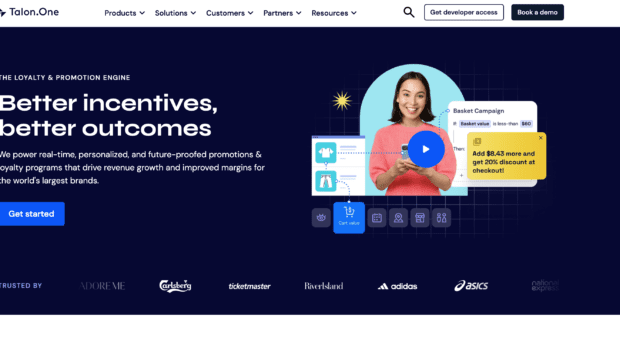
A third (30 per cent) of UK marketers say their organisation struggles to balance the use of AI with human creativity in major campaigns, highlighting a growing challenge in the race for brands to do more with less.
That’s according to the Optimize Everything report from Optimizely, a digital experience platform, which explores how marketers are using AI—and why it isn’t always landing with consumers. Based on a study of 100 marketers and 1000 consumers in the UK, the report reveals a growing disconnect between how AI is used in marketing, and how it is being experienced by customers.
While 78 per cent of marketers plan to increase their use of AI-generated content for seasonal campaigns, more than half of consumers (57 per cent) say this content feels ‘impersonal’ and ‘repetitive.’ Meanwhile, 56 per cent believe brands rely too heavily on AI and fail to deliver genuinely personalised experiences.
And marketers are noticing it too. Almost a quarter (24 per cent) admit that AI-generated decisions often lack human oversight, leading to inconsistencies, while 16 per cent say that the output doesn’t match their brand’s tone of voice.
At the same time, expectations are higher than ever. According to 84 per cent of marketers, consumers now demand more personalisation than ever before during major campaigns. And while brands are making progress with 62 per cent of consumers saying that website experiences feel personalised, and 60 per cent saying the same for email (a 6 per cent increase on last year), other touchpoints are falling short. Less than half rate personalisation in conversational channels as good or excellent, while 16 per cent rate them as ‘poor’ or even ‘terrible’. The same is true for online ads, which one in seven consumers (15 per cent) rate as ‘poor’ or ‘terrible’ for personalisation.
Despite some AI-generated content falling short, there’s a clear opportunity for marketers to optimise how they use the technology. Nearly half (46 per cent) of consumers say that they are happy for AI to be used if it results in more relevant and personalised content, showing that the issue isn’t AI itself, but with how it’s applied.
Integration is key. Today, only 24 per cent of marketers have a well-integrated system, but encouragingly, one in five are actively consolidating their tech stacks to fix that gap.
On top of that, 41 per cent of marketers say that better integration of AI with their marketing tools is their biggest opportunity for optimisation this year, and over half (53 per cent) want a more unified system that connects AI with content, personalisation, and experimentation.
Given this potential, Optimizely’s report argues that AI can help marketers create more personalised, and even ‘human’ experiences—but only if it’s optimised and integrated correctly.
“Marketers today are being asked to move faster and do more with less,” said Tara Corey, SVP, Marketing at Optimizely. “AI has incredible potential to help, but it’s not a magic wand. It needs to be paired with thoughtful experimentation, creative direction, and constant fine-tuning. The brands that are truly standing out are the ones blending AI with personalisation and bold, data-driven experimentation—creating digital experiences that feel fresh, relevant, and unmistakably on-brand.”








Share